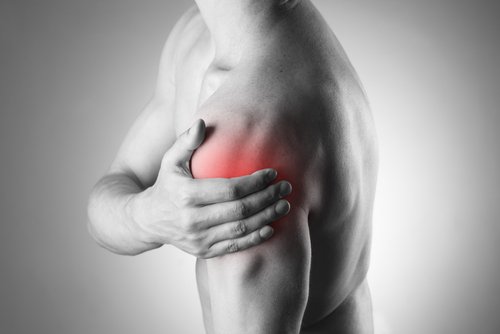What is a Dislocation?


Dislocation is a phenomenon by which two pieces of bone come to lose their contact. Often following a high ballistic trauma, the piece of bone comes out of its lodge and damages the joint as a whole from the inside. Immobilizing and strengthening the muscles to prevent recurrences is the watchword.
Dislocation refers to the displacement of one bone surface relative to another, causing a break or
joint discontinuity. It causes ligament pain and muscle pain and prevents normal joint movement. It is accompanied by a partial or total tear of the ligament. The articular surfaces must be quickly put back in place by a doctor. This is called reduction of the dislocation.
Frequent dislocations are those of the shoulder, elbow, hip, but can affect all parts of the
body and any upper or lower limb, such as the knee. In addition to tearing the ligaments, it can have more serious consequences and require
hospitalization and surgical treatment during recurrences, particularly for shoulders.
Our physiotherapists are specialists in traumatology and the treatment of dislocations. They prepare specific rehabilitation programs for you to combat shoulder dislocation and joint dislocations in general. The goal is to avoid any surgery or help you recover.
Painful, dislocation is not a fracture but the separation of the bones that form a joint: the two bone pieces are therefore no longer in contact.
We also speak of subluxation when the joints are almost displaced: this is the lower grade of the dislocation (hence the prefix sub): joint continuity is almost broken but not completely.
In general, the dislocated joint requires medical reduction and then physiotherapy rehabilitation to keep it in place. In recurrent shoulder dislocations, the physiotherapist treats by rehabilitating the rotator cuff, which is essential for maintaining joint cohesion.
Trauma is the most common cause of dislocations. Injuries can occur during intensive training (especially for athletes), road accidents or following numerous daily activities with high ballistics or high leverage. The severity of the dislocations depends above all on the time spent before the reduction, on the recurrence and the age of the person. Finally, certain pathological factors such as laxity (congenital or not) can favor dislocations.
The main symptoms are: pain in the joints, instability of the joint, difficulty in movement (the affected limbs cannot have normal mobility, in particular lateral rotation), deformity, functional impotence, l appearance of a hematoma, or simply, feelings of numbness.
The main consequences are disorders of sensitivity and motor skills of the extremities. An electric shock or tingling sensation may also be felt in patients with dislocation. An asymmetrical distal pulse and pallor in the fingers or toes are also consequences, hence the need for rapid and effective treatment. In extreme cases, joint reconstruction is possible.
Our physiotherapists take care of you after a clinical examination. Being aware of the seriousness of this pathology, immobilization may be necessary to treat you. Concerned about your health, they consult your results as well as your surgeon or general practitioner, in order to determine the most appropriate treatment for dislocations. Our physiotherapists know the anatomy perfectly and will be able to improve your abilities. The physiotherapist who will take care of you will carry out the rehabilitation in order to avoid a recurrence and a surgical intervention.
If the pain were to be too intense during the treatment, do not hesitate to have analgesics or anti-inflammatories prescribed by your doctor.
Our physiotherapists are very mobilized for all our patients and are committed to offering them the best treatments against dislocations.
They can also advise you on how to reduce the risk of dislocation. In addition, they intervene to treat any other discomfort, such as neck pain, shoulder osteoarthritis, ligament rupture, rotator cuff rupture, chronic instability, etc.
Our practitioner relieves your ailments and treats your after-effects to avoid all complications. Appointments are available throughout the week. We will be delighted to welcome you and support you in your rehabilitation process. Come and discover our know-how and our state-of-the-art equipment, as well as our very modern tools, adapted to all patients.